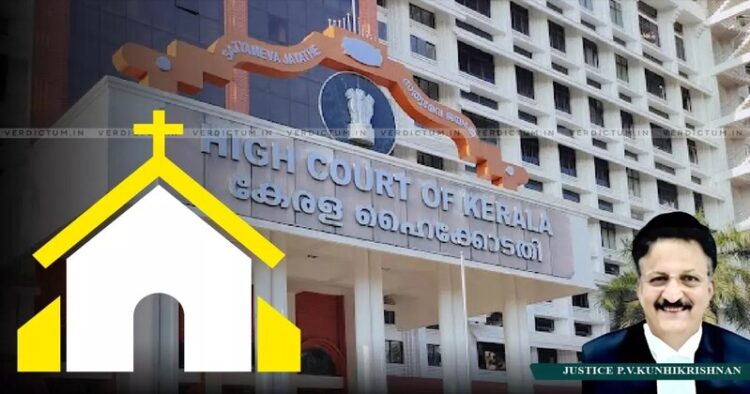In a significant ruling, the Kerala High Court has annulled the assignment of 5.5 hectares of government land in Wayanad to St. George Forane Church Kallody, stating that the government’s action had adversely affected the rights and aspirations of landless tribal communities. The court’s decision comes after social workers representing these tribal communities filed a petition challenging the allocation of land to the church at a nominal rate of Rs. 100 per acre.
The petition, presented by K Mohasdas and four others, highlighted the profound impact of the government’s decision on the landless tribal population in Wayanad District, Kerala. Justice P.V. Kunhikrishnan, presiding over the case, noted the unusual circumstances surrounding the assignment of government land and the glaring disparity between the meagre amount charged and the pressing needs of the tribal communities awaiting land allotments.
The court’s verdict emphasised the importance of addressing injustice, arbitrariness, and blatant violations of the law. Justice Kunhikrishnan stated, “When there is injustice, arbitrariness, and flagrant violation of law, the hands of this Court under Article 226 of the Constitution are not restricted.” The ruling highlighted the stark contrast between the assignment of a substantial piece of government land to the church and the pending applications of thousands of tribals seeking land for their livelihood and agriculture.
Referring to the situation as “piercing a knife to the hearts of the innocent ever-smiling tribals in Wayanad,” Justice Kunhikrishnan declared the assignment not only illegal but a breach of the constitutional rights of the tribals, including the petitioners. The court emphasised its duty to address such illegalities and protect the rights of marginalised communities.
The petitioners argued that the assignment of land to the church disregarded the pressing needs of landless tribal families and contravened agreements pledging land distribution to tribal communities. They underscored the socio-economic struggles of tribal communities in the region and emphasised the importance of prioritising their rights and welfare.
In response, the 5th respondent Church defended its possession of the land, citing its establishment before 1955 and the presence of various activities and institutions, including schools and a cemetery, on the property. The church claimed to have applied for land rights since the 1950s, justifying its claim to the government land.
However, the Kerala High Court dismissed the church’s claims, stating that there was no public interest in assigning such a significant parcel of land to an encroacher. The court rejected the notion of public interest in assigning land to an entity that had encroached upon government land, despite the presence of educational and religious institutions or a cemetery on the property.
Justice P.V. Kunhikrishnan, presiding over the case, remarked, “Encroachers of government land are not entitled to any equity, and there is no public interest in assigning property when there is admitted encroachment.” The court emphasised the state machinery’s responsibility to repossess encroached land, even if the encroachment had occurred decades ago, unless there was a legal impediment.
The ruling reaffirmed the principle that encroachers of government land cannot claim equity and highlighted the imperative for the state machinery to address encroachments promptly. The judgement underscored the court’s commitment to upholding the rights of marginalised communities and ensuring fair and equitable land distribution practices.
The petitioners, representing landless tribal communities in Wayanad, challenged the assignment of government land to the church, citing its illegal encroachment since 1962. The court found merit in the petitioners’ arguments and directed the 1st respondent to assess the market value of the encroached property within two months. The 5th respondent, the church, was given one month to decide whether to purchase the land at market value. If the church declined, the government was instructed to evict the church from the property within three months and distribute the recovered land to eligible persons in accordance with the law.
The court’s order highlights the need for fair and equitable land distribution practices, especially in tribal areas where landless communities await residential plots. It underscores the court’s commitment to upholding the rights of marginalised communities and ensuring accountability in land allocation processes.
Temple activist TR Ramesh, who hailed the court’s decision, criticised the Kerala government’s alleged hypocrisy in allocating valuable lands to churches at a nominal rate while disregarding Hindu temples and mutts. Ramesh expressed gratitude to Mohandas TG, who represented the petitioners in court and exposed what he called the government’s “shameful hypocrisy.”
The ruling has sparked discussions about the equitable distribution of land and the need for transparency in government land allocation policies. Critics argue that preferential treatment given to certain religious institutions undermines the principles of fairness and equality enshrined in the constitution.
The Kerala government’s land allocation practices have come under scrutiny, with allegations of favouritism and unfair treatment towards certain religious institutions. The court’s decision serves as a reminder of the importance of impartiality and accountability in land distribution processes, particularly in sensitive regions like Wayanad.
As the legal battle continues, the Kerala High Court’s ruling sends a clear message about the need for fair and transparent land allocation practices that prioritise the welfare of marginalised communities and uphold the principles of justice and equality.



















Comments